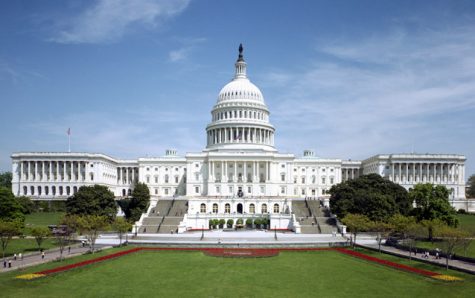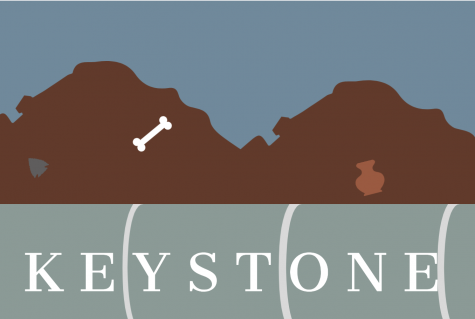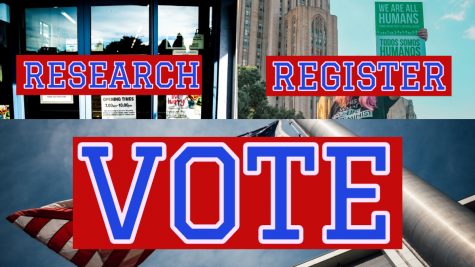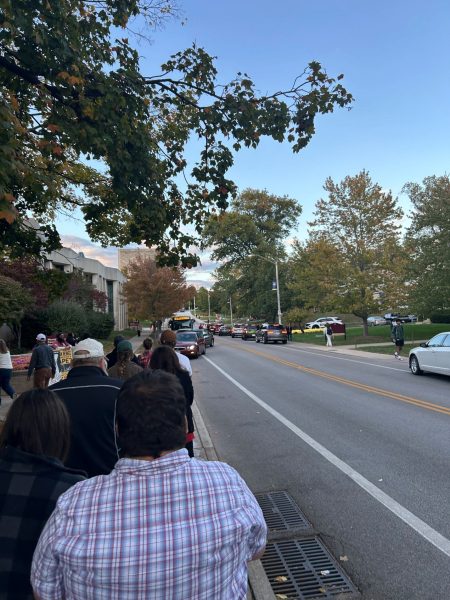FCC votes to repeal Net Neutrality with party-line vote of 3-2
The FCC has voted to repeal the legislation used to keep the internet free and open, but the battle isn’t over yet.
In some countries without net neutrality regulations put in place, like Portugal, app bundles are common with a monthly fee. Design by Louis Herlihy.
A cloud of uncertainty could be in the forecast for those born and raised through the internet and the social media age.
On Thursday, Dec. 14, the Federal Communication Commission’s vote on the future of Net Neutrality came down to a straight party-line decision of 3 to 2. Republican commissioners, Ajit Pai, Michael O’Rielly and Brendan Carr, all voted in favor of repealing the rules.
Democrat commissioners, Mignon Clyburn and Jessica Rosenworcel, were both on the latter side of the vote. Clyburn expressed her displeasure with the Republicans’ proposal prior to the vote.
“I dissent because I am among the millions outraged,” Clyburn said. “Outraged because the FCC pulls its own teeth, abdicating to protect the nation’s broadband consumers.”
Rosenworcel also delivered an extremely critical address to display her destain with the idea of the possible repeal.
“I dissent from this rash decision to roll back net neutrality rules.” Rosenworcel said before the vote was made. “I dissent from the corrupt process that has brought us to this point, and I dissent from the contempt this agency has shown our citizens by pursuing this path today. This decision puts the FCC on the wrong side of history, the wrong side of the law and the wrong side of the American people.”
What is Net Neutrality?
In the 10 years leading up to the rules being established, the internet was rapidly and constantly changing. Companies had more power than ever before. AT&T took their power too far, blocking FaceTime on Apple devices for some customers in 2012 — which eventually led to many complaints from public interest groups.
Net neutrality rules were put in place in 2015 under the Obama administration’s FCC commissioners as a safety net for consumers and to establish a free and open internet.
Under the regulation, the internet was considered a utility, as opposed to a luxury, by Title II of the Communications Act, giving the FCC broad power over the internet providers. Or simply put, the rules meant all data on the internet will be treated equally.
According to the New York Times, the rules were put in place to prohibit internet service providers (ISPs) from the following practices:
- Blocking: ISPs could not discriminate against any lawful content by blocking websites or apps.
- Throttling: ISPs could not slow the transmission of data based on the nature of the content, as long as it is legal.
- Paid Prioritization: ISPs could not create an internet fast lane for companies and customers who pay premiums, and a slow lane for those who don’t.
“I thought the rules were a good idea, especially since the principle of net neutrality is that all network traffic should be treated the same by the ISPs,” Sridhar Ramachandran, coordinator and associate professor of Informatics at IU Southeast, said. “Now that it is repealed, we have to ‘trust’ the principle is adhered to since each ISP can interpret or adapt it as they feel appropriate.”
The idea of a free and open internet was the way many felt the internet should remain.
“I believe the internet should be treated openly and freely,” Milton Trent, network team leader at IU Southeast, said. “It was made to share information and has sparked so much innovation.”
The Broad Effect
With the rules being repealed, the internet will no longer be treated as a utility, but a luxury. The consumers safety net has disappeared.
“I believe eventually it needs to be regulated as a utility,” Chris Kimmer, associate professor of Informatics, said. “It has been used more and more by people for jobs and people now rely on it.”
With the business landscape changing and people relying on online exposure and smartphones, the safety net being gone could have a much larger impact on small businesses and individual consumers to rely more heavily on their ISP.
“We’re told ‘don’t worry, competition will save us,’” Rosenworcel said. “But the FCC’s own data show that our own broadband markets are not competitive. Half the households in this country have no choice of broadband provider.”
In a market that is far from competitive, there are few incentives cable companies and ISPs have to keep prices low and not start charging for paid prioritization.
“It is not a competitive market,” Kimmer said. “Let’s look at Louisville for example, Google is trying to get in and they’re having to fight Comcast, so the fact that the fight is happening shows it is not a competitive market.”
Prior to the vote, ISPs reached out to customers and asked for their trust. However, the providers were making changes to their net neutrality promises.
It can be hard to blindly trust companies to keep their promises when they have been known for unexpected price and policy changes in the past.
“They won’t keep their promises,” Trent said. “Their companies are driven by the dollar and not by the service — they are only there to make money.”
Kimmer believes these companies can and will keep their promises, but the consumers may not be satisfied.
“I think they will keep their promises,” Kimmer said. “But, only because they have worded them in such a way that they will be able to keep their promise but not in a way satisfactory to consumers.”
Other possible outcomes of the rule repeal are app bundles, which are happening in countries like Portugal, who do not have strict net neutrality rules in place.
“Bundled service is not a new concept for the ISPs and so they have the resources to do that with the internet service as well,” Ramachandran said. “In that context, bundled service would not be surprising, but the first major battle will be between content providers and the ISPs since ISPs now have new power at the negotiation table.”
The Effect on IU Southeast
On campus, the repeal of the rules will not have the same effect on the IU Southeast network.
“Our network will not be affected,” Trent said. “We’re a wide area network within the state of Indiana. The only thing [the rule repeal] could hamper that is consumers off campus sitting at their house.”

With a school where more than 92 percent commute to campus, the biggest impact on students will come from their internet providers. Most students will be at the mercy of their providers at home and be a part of the crowd having to trust they do not gouge them for more money.
“Internet connection is necessary for students for basic activities like checking their campus email, accessing the One.IU site or even submitting their assignments on the Canvas CMS site,” Ramachandran said. “We can no longer assume that everyone will have access to affordable and similar internet service.”
Another possible area of effect for the student body is online classes. More classes are being offered online and students are opting to take those classes each year as opposed to the traditional classroom setting.
Trent assures the online classroom and accessing other educational institutions online will not be difficult or effected by the repeal.
“It’s not going to affect online classes at all,” Trent said. “Basically with [IU Southeast] being a cloud provider, if you are connected to our cloud, you really won’t see any issues for online classes. Also, students should not have any trouble accessing other academic institutions when doing school work or research.”







